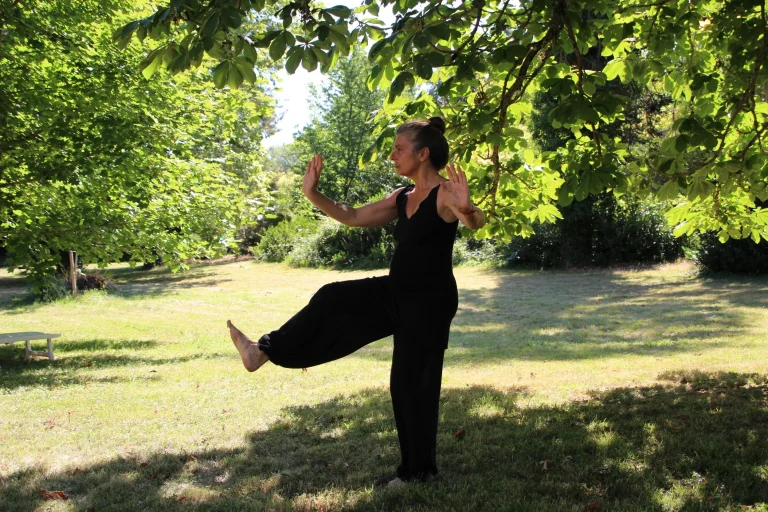
Anxiety can feel like an uninvited guest that constantly hovers over your thoughts, making even simple daily tasks feel overwhelming. For many, it’s a silent struggle, often hidden behind a calm exterior, yet profoundly impacting mental and physical well-being. The good news is that while anxiety may never fully disappear for some, adopting effective mindset techniques can drastically reduce its grip and help you regain control. At Hearts & Minds Development, we focus on holistic approaches that strengthen the mind, allowing individuals to face challenges with resilience and clarity. This article explores practical and evidence-based strategies for dealing with anxiety that go beyond quick fixes, empowering you to cultivate long-term mental calm and emotional stability.
Understanding Anxiety and Its Impact
Anxiety is a natural response to stress, but when it becomes persistent, it can interfere with your daily life. It often manifests through racing thoughts, tension, restlessness, and physical symptoms such as increased heart rate or shallow breathing. While occasional anxiety is a normal human experience, chronic anxiety can erode confidence, disrupt relationships, and lead to mental fatigue. Understanding the root causes of anxiety is crucial for dealing with it effectively. Mindset techniques work best when combined with a clear recognition of triggers, whether they stem from work pressures, personal relationships, or past trauma.
The Power of Mindset in Dealing with Anxiety
Mindset plays a pivotal role in shaping how we perceive and respond to anxiety. The brain’s neural pathways are adaptable, meaning your thoughts can influence emotional reactions over time. By consciously cultivating a mindset that encourages self-compassion, resilience, and realistic thinking, you can lessen the intensity of anxious episodes. Mindset techniques are not about suppressing anxiety; they focus on transforming your relationship with it, allowing you to observe anxious thoughts without letting them dominate your actions.
Developing Self-Compassion
One of the first steps in dealing with anxiety is fostering self-compassion. People experiencing anxiety often engage in harsh self-criticism, blaming themselves for their feelings or perceived failures. Mindset work involves shifting from judgment to understanding, treating yourself with the same kindness you would offer a close friend. Practicing self-compassion doesn’t mean ignoring problems; it means acknowledging difficulties without intensifying stress through negative self-talk. Over time, this approach creates a safe inner environment where anxiety can be managed rather than magnified.
Reframing Negative Thoughts
Anxiety often stems from cognitive distortions—patterns of thinking that exaggerate risks or anticipate worst-case scenarios. Reframing is a mindset technique that encourages you to challenge these distorted thoughts and replace them with more balanced perspectives. For example, if you constantly worry about making mistakes at work, reframing might involve recognizing that mistakes are opportunities for growth rather than proof of inadequacy. Consistent practice in identifying and reframing negative thoughts can reduce the frequency and intensity of anxious episodes, fostering a calmer mental landscape.
Mindful Awareness
Mindfulness is a powerful tool in dealing with anxiety. It involves cultivating present-moment awareness without judgment, observing thoughts and sensations as they arise. Mindfulness allows you to step back from the anxiety, acknowledging it without automatically reacting. Techniques such as focused breathing, body scans, and guided meditation can anchor your attention in the present, preventing spirals of worry. Over time, mindfulness enhances your ability to regulate emotions, reduces stress reactivity, and strengthens overall mental resilience.
Setting Realistic Expectations
Anxiety is often fueled by perfectionism and unrealistic expectations. Adjusting your mindset to embrace flexibility and imperfection can significantly alleviate stress. Setting realistic goals and celebrating small achievements fosters a sense of accomplishment and reduces the pressure that drives anxious thoughts. By recognizing that setbacks are part of the human experience, you build emotional endurance, allowing you to navigate challenges with steadiness and confidence.
Daily Practices to Support a Calmer Mindset
Incorporating mindset techniques into daily routines amplifies their effectiveness. Simple, intentional habits reinforce new thought patterns and create sustainable emotional balance.
Journaling for Insight
Writing down your thoughts can help clarify feelings and identify anxiety triggers. Journaling encourages reflection and helps externalize anxious thoughts, making them easier to examine and reframe. Over time, it cultivates self-awareness, revealing patterns in thinking that contribute to stress.
Gratitude Practice
Gratitude shifts focus from worries to positive aspects of life. Regularly acknowledging things you appreciate, no matter how small, trains your mind to notice positive experiences, counteracting anxiety’s tendency to magnify negatives. A daily gratitude practice nurtures optimism, resilience, and emotional stability.
Physical Activity
Exercise is closely linked to mental health, releasing endorphins that naturally combat stress and anxiety. Incorporating consistent physical activity into your routine supports a balanced mindset, enhancing energy levels, sleep quality, and emotional regulation.
Social Connection
Meaningful connections provide emotional support, perspective, and a sense of belonging, all of which are vital for managing anxiety. Engaging with supportive friends, family, or therapy groups fosters understanding and reduces the isolation that can intensify anxious thoughts.
Professional Support: A Complementary Approach
While mindset techniques are highly effective, professional guidance can enhance results, especially for persistent or severe anxiety. Therapy options such as cognitive-behavioral therapy (CBT), mindfulness-based stress reduction (MBSR), and guided coaching sessions offer structured approaches to dealing with anxiety. At Hearts & Minds Development, personalized sessions integrate mindset strategies with practical coping tools, ensuring a holistic approach tailored to each individual’s needs.
Cultivating a Long-Term Anxiety-Resilient Mindset
The key to effectively dealing with anxiety lies in consistency and persistence. Mindset techniques require practice, patience, and self-compassion. By committing to daily mindfulness, self-reflection, and realistic thinking, you gradually reshape your mental responses, reducing anxiety’s hold over your life. Over time, these practices cultivate emotional resilience, allowing you to approach challenges with confidence, clarity, and inner peace.
Dealing with anxiety is not about eliminating discomfort entirely; it’s about transforming how you respond to it. Through mindset techniques that prioritize self-compassion, mindful awareness, cognitive reframing, and practical daily routines, you can regain control of your thoughts and emotions. At Hearts & Minds Development, we believe that every individual has the capacity to build a stronger, calmer, and more empowered mind. By embracing these strategies, you take proactive steps toward a life where anxiety no longer dictates your choices but becomes a manageable part of your human experience.
The journey may require dedication, but each step forward strengthens your ability to face life with resilience. Begin today by integrating these mindset techniques into your daily routine, and witness the transformative power of a calmer, more focused, and empowered mind.



